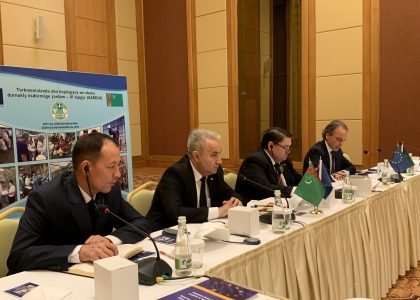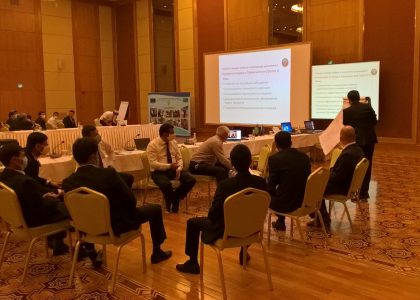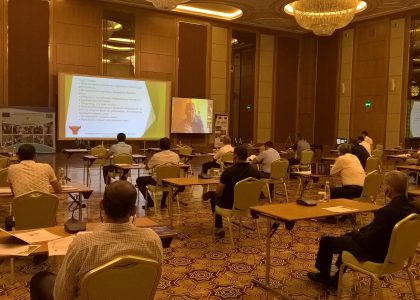A Human Dynamics led consortium has been engaged to deliver a 48-month, EUR 4.1million, EuropeAid project “Support to the public administration capacity building in Turkmenistan”. Our team will support the modernisation of the Turkmen Public Administration in line with European and international standards.
Turkmenistan has recurrently flagged that its further growth and economic development is hampered by a shortage of well-educated and skilled officials to run the state bodies and to elaborate and implement new policies. In this project, our team will focus on developing human capital within Turkmenistan’s civil service to support civils servants who are crucial to delivering the reforms underway throughout the country. As human capital underpins a well-functioning modern civil administration and education system is a prerequisite for the delivery of broader economic growth
Improving Human Capital
To deliver a step change improvement, our team will work within the existing framework in the country. The Academy of Civil Servants will be the primary beneficiary of our team’s attention. The Academy of Civil Servants has, since 2008, been the sole accredited provider of education to members of the civil service. The Academy was formed as part of a raft of constitutional changes in 2008 and represents Turkmenistan’s new approach and commitment to development. Our team will be working directly with the Academy’s 30 staff, both to teach them different techniques and support them as they deliver in their important role. The Academy has already begun to deliver on their mandate. In the period between 2009 and 2014 the Academy conducted training and retraining for more than 800 civil servants. With those trained ranging from heads of local self-government to the heads of ministries and departments.
One of the key policies which our team will contribute to the delivery of is the main national framework and the public administration reform agenda outlined in the National Programme for Socio-Economic Development of Turkmenistan for 2011-2030, which was adopted by the Government in May 2010. This policy outlines a path forward for Turkmenistan including diversification of the economy, increased competition and further market and institutional reform. Our team will work to support the Academy of Civil Servants improve their educational programmes and teaching, as well as their administrative policies and processes to ensure they optimally leverage their role.
The Academy of Civil Servants will not be this project’s sole beneficiary, our team will also work with the Institute for State and Law, the Institute of Democracy and Human Rights, Turkmen State University as well as the Institute of International Relations of the Ministry of Foreign Affairs of Turkmenistan. These organisations provide specialists who provide training on key areas in conjunction with the Academy of Civil Servants. More broadly, our team will also engage with the wider stakeholder group of other Turkmen Ministries who benefit from the training provided by the Academy.
A focus of our team’s engagement will be to develop “demand driven” training. Training that meets the actual needs and demands of the Turkmen Ministries, and can evolve training with the needs of the civil service. To implement this new approach our team will partner with the Academy and Ministries to develop new curricula, materials and train staff in different techniques to implement and embed a demand driven approach.
Our team
Our team will be deployed in Ashgabat in October 2016 to ensure the project’s successful and smooth implementation. The Team is composed of a Project Director, Ivelina Dilovska, and two Key Experts.
Human Dynamic’s Project Director, Ms Dilovska described the projects as, “an exciting challenge that allows us to build on our considerable experience in the region and in the field of public administration education.”
Our Team Leader, Mr Folkert Milch, described his and his teams’ outlook for the project: “The project team is excited by the opportunity to share its expertise and to adapt this to the specific trends and requirements of the civil service sector in Turkmenistan, and to equip the project beneficiaries with the skills and capacities to make choices and take initiatives informed by best practices. The project will be run on the basis of optimal project cycle management practice with respect to the existing administrative procedures, and will target the achievement of sustainable results and the successful transfer of ownership over the project outputs. Thus, our leading principles in the implementation of project activities will be to ensure the active involvement and participation of all beneficiaries and final users; collaboration with key stakeholders, donors and partners; establishment of transparent project process; and regular dissemination of information. The project team believes that high professional performance combined with trustful and effective communication with beneficiaries is the key to success for this project in Turkmenistan.”





